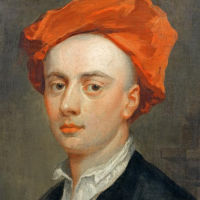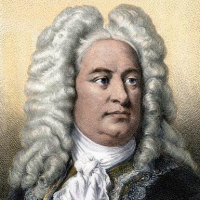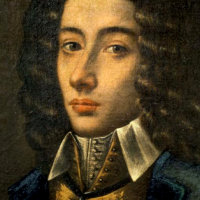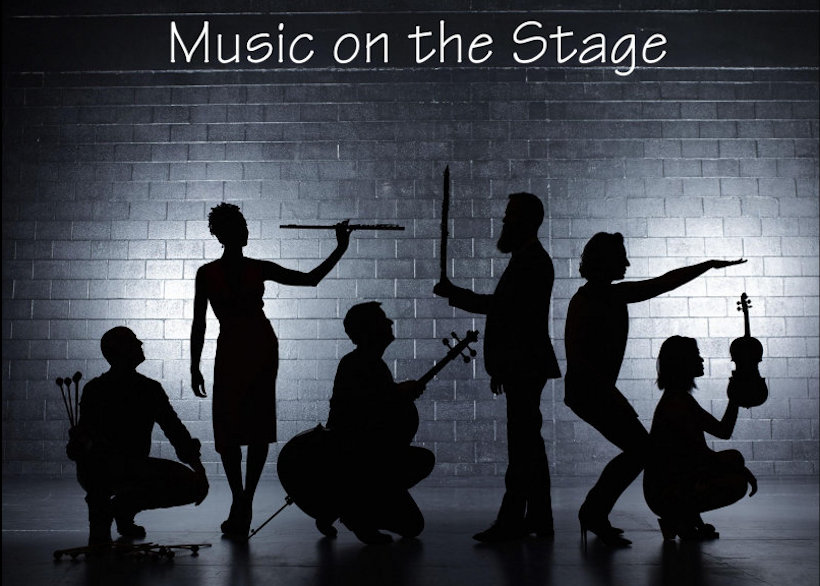5. Not Always Serious.
A class entirely devoted to opera, beginning with the high-minded opera seria that was in vogue in London
in the early 1700s while Handel was producing his prodigious output. After looking at some of the reasons for his
success, we turn to John Gay’s Beggar’s Opera, a musical play featuring highwaymen and whores rather than
kings and heroes, whose satirical songs used popular tunes, and which achieved a London run in 1728 unmatched by
any opera.
Other ballad operas followed The Beggar’s success, but no others are now performed; their true legacy can be
seen on Broadway. But the other challenge to opera seria was more insidious and far longer-lasting: comic
intermezzi written to be performed between the acts of the more serious fare, which eventually took on a life
of their own in the comedies of Mozart, Rossini, and others. We shall sample Pergolesi’s La serva padrona,
ancestor of the entire genre of opera buffa. rb.
The script, videos, and images will be posted immediately after class.
Amazingly, the Madrid production of Rodelinda that we saw is available (for now) complete on YouTube,
as is the BBC film of The Beggar's Opera and the production of La serva padrona; all three
are cued to the numbers we watched, but you can scroll through to see them all. The only production for which
I had to make do with a trailer is the Edinburgh/Paris Beggar's Opera. I also posted my section titles,
and added two other versions of the Beggar's Opera tavern scene, so that you may sample the more-fully
developed musical arrangements that were current before the authentic-instrument revival kicked in. *Asterisked
items are therefore new, and not seen in class. rb.
| GENERAL |
| |
Titles |
|
* All animated titles
|
| |
| A. RODELINDA ETC. |
| |
Rodelina in Madrid |
|
* Bertarido's Act II entrance
(Bejun Mehta; Claus Guth production)
* Act II duet
(Lucy Crowe with Mehta)
* Bertarido's "Vivi, tiranno!"
* Finale
|
| |
Other items |
|
* Opening of Met production
(Renée Fleming)
* "Vivi, tiranno!" in concert
(Christophe Dumaux)
* Monteverdi: Poppea, final duet
(Lea Desandre, Jakub Jozef Orlinsky)
* March from Rinaldo
(audio only)
|
| |
| B. THE BEGGAR'S OPERA |
| |
BBC 1983, Jonathan Miller |
|
* Opening
* Act II catfight
(Roger Daltrey, Carol Hall, Rosemary Ashe)
|
| |
Edinburgh 2018, Robert Carsen |
|
* Trailer
(production as filmed later in Paris)
|
| |
Other tavern scenes |
|
* Benjamin Britten 1948
* Sir Arthur Bliss 1953
(Peter Brook film with Laurence Olivier)
|
| |
| C. LA SERVA PADRONA |
| |
Various numbers |
|
* "Sempre in contrasti"
(Furio Zanassi)
* "Stizzoso, mio stizzoso"
(Sonya Yoncheva)
* "Lo conosco a qugli occhietti"
(Yoncheva, Zanassi)
|
| |
|
|
|
|
|
| IMAGES |
The thumbnails below cover the slides shown in class, though
there may be a few small discrepancies. Click the thumbnail to see a larger image.
Click on the right
or left of the larger picture to go forward or back, or outside it to close. |
 | |
 | |
 | |
 | |
 | |
 | |
 | |
 | |
 | |
 | |
 | |
 | |
 | |
 | |
 | |
 | |
 | |
 | |
 | |
 | |
 | |
 | |
 | |
 | |
Here are brief bios of the artists, composers, and writers considered in the class, listed in order of birth.
 |
Claudio Monteverdi, 1567–1643. Italian composer.
The towering genius of the first half of the 17th century, and a founding father of opera. Unfortunately, only three of his dozen operas survive: La favola di Orfeo (The Story of Orpheus), written for Mantua in 1607 and the earliest opera to remain in the general repertoire, and The Return of Ulysses and The Coronation of Poppea, both written for Venice at the end of his life.
|
 |
John Gay, 1684–1732. English poet and playwright.
Although he wrote the libretto for Handel's early opera Acis and Galatea (1718), Gay is best known as the author of The Beggar's Opera (1728), satirizing the very kind of opera that Handel made famous. The songs in this piece about highwaymen and whores are sung to popular tunes arranged by the German-English composer Johann Pepusch.
|
 |
George Frideric Handel, 1685–1759. German-born English composer.
Gradually over the last half-century, Handel's 42 operas and numerous dramatic oratorios have been recognized as placing him on the level of Mozart and Verdi as an opera composer. The delay in appreciation is partly due to the fact that his preferred form, opera seria, is based almost entirely on recitative and solo arias. Born in Germany and trained in Italy, he dominated the English musical scene in the first half of the 18th century.
|
 |
Giovanni Battista Pergolesi, 1710–36. Italian composer.
Although he died at the age of 26, Pergolesi had already written several operas, including the comedy La serva padrona, and a variety of religious music, most notably his Stabat Mater. His work is noted for its melodic grace and sweetness. More music is attributed to him than he could possibly have written!
|




























